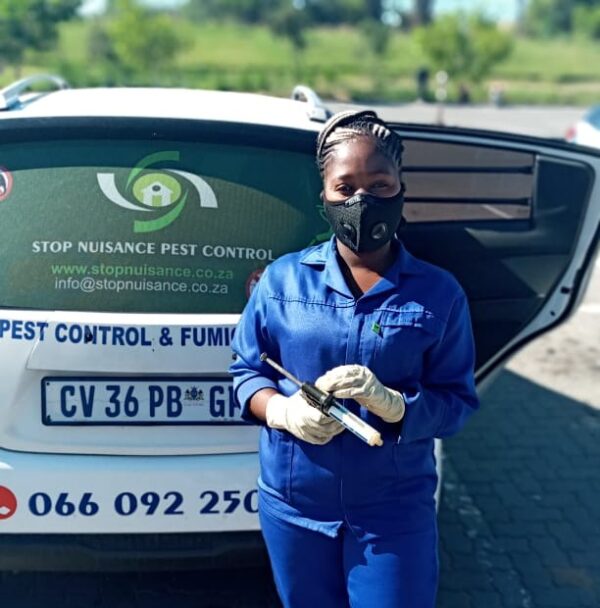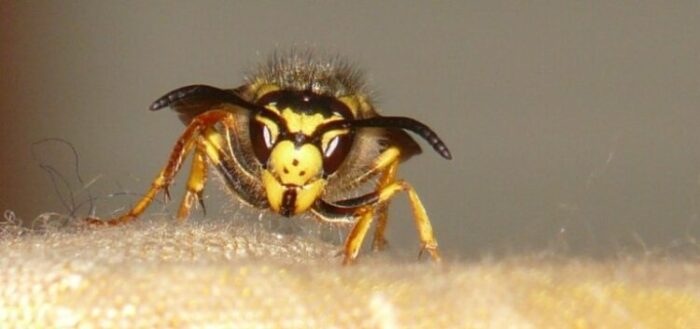Wasps can survive without food or water for up to two days. Although the majority of wasps die of starvation within 72 hours, this varies according to species, class, age, weather, diet, and how recently they ate. Due to their unique biology, a wasp can even survive without its head until it dies of starvation.
Wasps’ ability to survive in the absence of food varies significantly. Their survival is contingent upon a variety of factors, including species, colony ranking, age, and current weather conditions. It can last anywhere from a few days to a few weeks.
Certain species have distinct feeding habits, with some preferring sugary foods and others hunting for meat. The ones that require sugar have a higher energy maintenance requirement, necessitating frequent feeding, which causes them to starve more quickly if not properly fed.
Additionally, worker wasps have a significantly shorter lifespan than queen wasps, as queens can live for several years, whereas workers live for only a few months.
Weather has a significant impact on how long a wasp can survive, as extreme cold or heat can quickly kill them off, even if they are well-fed, and even faster if they lack food sources. However, if the temperature is just cold enough to prevent them from dying, their metabolism can slow, allowing them to survive longer than usual.
If you notice a wasp inside your room, do not expect the wasp to die quickly from starvation; instead, eliminate the wasp using safe and effective remedies.
Table of Contents
How Long Can Wasps Survive Without Food?
People frequently ask this question in the hope that a wasp that has entered the house will die quickly on its own. Regrettably, that is an improbable scenario.
Wasps can survive for days or weeks without food. However, if you are able to identify the species, this will assist you in narrowing your search.
Wasps that have recently consumed food will obviously survive longer without it, as they begin with a slight advantage. Additionally, their diet is critical, as there are two distinct types of wasps.
To begin, wasps can be carnivorous or insectivores, consuming primarily meat.
Second, some wasps are pollinators and feed primarily on sugar. Generally, only the larvae or baby wasps consume meat.
Wasps that live primarily on sugars have a faster metabolic rate. As with bees and hummingbirds, sugars sustain them and allow them to live high-energy lives.
Fortunately, sugar-craving wasps will typically die sooner as a result of this. These are the species that could perish in a matter of days or even hours without food.
Meat-eating wasps consume a high-calorie, filling diet. They are likely to eat less frequently in nature and, as a result, will naturally survive longer between meals.
Additionally, because their metabolisms are slower, they will starve much more slowly. A carnivorous wasp may not even process its last meal completely before a sugar-wasp requires another meal.

How Is The Climate?
Temperature is a factor in wasp behavior. When it is too hot outside, a wasp will dehydrate more quickly. Additionally, it will burn through its stored calories more quickly. Overheated wasps can die within a day or less.
Alternatively, a wasp can exhibit two distinct responses to cold. If the cold is severe and sudden, the wasp will perish quickly due to their inability to adapt.
See also Can a Wasp Sting You if You hold Your Breath? [Explained]
However, if you have a queen wasp that is capable of hibernating, they may simply enter a dormant state.
Reduced metabolism can render them inactive, which may appear to be death, but is not the same thing.
Dormant, hibernating wasps can go months without food before reviving.
Class Concerns
A worker wasp and a queen wasp are diametrically opposed. Workers have shorter, more energetic lives and typically die within a few months.
In the meantime, the queens will continue to live for several years. As a result, queens have a greater chance of surviving longer periods of time without food.
It is preferable to evict a wasp from your space as soon as possible. If it’s flying around, close the curtains and turn off the interior lights.
Then, open a window or door to entice the insect to leave. However, if it appears to be dead, scoop it up with a cup or piece of paper and remove it.
How Do Wasps Survive in the Absence of Food?
When the seasons change and winter arrives, the majority of wasps perish due to a lack of food. When food becomes scarce, the majority of workers will die naturally.
Typical workers have a lifespan of about six weeks and spend the majority of their time collecting insects or nectar.
Because they spend the majority of their time collecting food, workers are typically well-fed.
Although a worker does not store as many calories as a queen, wasps are generally successful creatures capable of supporting their lifestyle. Whether it’s flowers or insects, gathering food for them is simple.
The queen, also known as a ‘queen bee,’ is the wasps’ hive’s ruler, and her life is distinct from that of the workers.
Typically, she is the largest, the oldest, and the most formidable. Additionally, queens conserve energy during the majority of the year in order to lay eggs and survive winter hibernation.
Just as bears and other animals store calories in order to go months without eating, queen wasps do the same.
When the cold weather arrives, they will seek refuge in some bark, a small burrow, or another conveniently sheltered location.
Internally, the queen’s body then slows down. As she enters a state of torpor, her metabolism will consume significantly less fuel.
When the spring thaw occurs, the queen, dubbed a ‘Foundress,’ will emerge and relocate her hive. They never revisit the same location twice.
How Long Can A Black Wasp Live Without Food?
A Great Black Wasp is quite distinct from the majority of wasp species. Rather than communally living in large hives, these wasps are primarily solitary and non-aggressive.
Males lack stingers and exist solely to mate. Meanwhile, females spend their days nectar-eating and insect-hunting in order to feed their voracious larvae in their underground dens.
Due to their size, which ranges from 1 to 12 inches in length, and their sugar-based diet, a Great Black Wasp cannot survive without food for an extended period of time. On average, these peaceful wasps will die off within two to six days indoors.
How Long Can Paper Wasps Live Without Food?
Paper wasps can cause havoc. A colony of paper wasps can survive for months indoors.
Individual wasps, on the other hand, will die in about ten days if they are deprived of food and water.
Contrary to popular belief, paper wasps do not consume wood or paper but collect it to use in nest construction.
Adult paper wasps feed on nectar and pollen. They do, however, hunt insects, particularly caterpillars, to bring home as larvae.
That means the adults are sugar-wasps, and they will likely die off faster than carnivorous wasps, even if they are well fed.
How Long Can A Queen Wasp Live Without Food?
A queen wasp can survive without food for several months, but only if the environment is sufficiently cold. Due to the fact that queens hibernate, they will survive longer whenever the temperature drops low enough for them to become dormant.
However, if the temperature rises too quickly or if the environment in which they are trapped becomes suddenly warmer, they may emerge and starve within days or weeks.
See also Where do Wasps Go when it Rains & 15 Other FAQ’s
How Long Can A Yellow Jacket Live Without Food?
It’s difficult to say how long these wasps can survive without food. According to some, yellow jackets can survive for several days without food. In several instances, yellow jackets that had been trapped in jars for several days survived when released.
However, if we consider wasps in general, it is easy to see that their peak period occurs between spring and fall.
They feed on nectar, insects, and debris found in their living area during this time, and thus exhibit their typical eating behavior.
Things change when food supplies run low, which occurs during the winter. If yellow jackets are still alive this season, it won’t be long before they perish from starvation. Wasps, in general, will starve to death within a few days.
A wasp’s life is directly related to its position in the colony. Queen bees and fertile females live longer, typically a year, whereas female workers live for about three weeks.
How do wasps survive in the absence of Water?
Wasps can survive for approximately 1-2 weeks without food. Wasps consume a wide variety of larvae and insects, as well as nectars.
Wasps feed their larvae on the nectars of flowers and other plants, aphid honeydew, or a sugary liquid produced by their larvae; however, adults wasps feed on sugars from nectars of flowers and other plants, aphid honeydew, or a sugary liquid produced by their larvae.
Wasps eat nectar fruits, honey, small insects, and plants primarily. Bald-faced wasps subsist entirely on juices and fruits. Yellowjackets, on the other hand, eat human food and frequently appear to hoover over dustbins.
These are their food sources, but they are not voracious eaters and can go for extended periods of time without food if they are in a group. However, they are regarded as extremely social.
As a result, they may perish if discovered alone rather than in a group. However, wasps are preyed upon by a variety of natural predators, including birds, praying mantis, dragonflies, centipedes, and bats. Additionally, wasps have been observed feeding on spiders and caterpillars.
Paper wasps frequently feed on wood or wood-like materials and build paper-like nests.
What enables wasps to survive in the absence of Water or food? What does a wasp require to survive?
Starvation is a common occurrence for wasps that survive the winter and occurs within a couple of days.
A wasp’s life cycle is determined by the insect’s position within the wasp’s hurl.
Fertile females, or queen wasps, can live for an entire year while producing eggs and larvae. On the other hand, working sterile female wasps that do not lay eggs have a lifespan of only twenty days.
Wasps, on average, will starve to death after about ten days. Thus, queen bees have the longest lifespan of any female or male wasp. Female working wasps live for approximately three weeks, while males survive for one to three weeks without food.
Wasps require communal living with their nests. Otherwise, they quickly succumb to loneliness. They are regarded as a highly social species. Their primary objective is reproduction, and thus after mating.
Male wasps die quickly, while female wasps spend the winter hibernating in an enclosed area. In cell-like pods, these fertilized females establish their own colonies, while the sterile females nurture and care for the baby wasps.
How Long Can a Wasp that has been Captured Survive? Can a Wasp Survive in a jar for an Extended Period of Time?
A trapped wasp can survive for approximately ten days. A wasp can survive for up to two days in a jar with air. It could also stay for only a couple of hours. Wasps are social insects, which means they will likely survive much less if kept alone in captivity.
They are isolated and suffer from loneliness and a loss of sense of direction. Additionally, the air, environment, and weather conditions would kill a wasp much more quickly if kept in a jar.
Wasps can enter holes as small as 3/32 to 3/8 inch (2.5-10 mm) in diameter on the inside. As a result, you would need to create even smaller holes to allow hair to pass through the jars, or you could simply keep them in a jar rather than sealing the top with a net-like material.
See also How to Crystalize Wasp Spray [Video+Picture Guide]
How Long do Wasps Live?
Without food and water, wasps will die in about ten days; in captivity, they will die in about three days; and in a jar, they will die in about three days. Indoors, they become dehydrated and quickly begin to drift off and die.
Additionally, they die more quickly when they are alone rather than in a group.
And if they are kept in a jar, they will be deprived of oxygen and will eventually perish. However, each wasp is unique in its variety. Depending on their species, some survive a few days longer than others.
Additionally, fertilized female wasps live significantly longer than male wasps and unfertilized females.
Male wasps become extinct following mating. Wasps require food to survive, and without nectars, plants, caterpillars, or human food waste, they will perish. Additionally, they do not survive the winter and die in the fall. During this time period, female egg layers hibernate.
How Long does it Take for a wasp to Die in an Enclosed Space?
Indoors, it takes about 7-10 days for a wasp to die. Males typically survive outside in nature for about 12 to 22 days in their nests.
Female workers who are sterilized survive approximately 3-4 weeks.
They lay few eggs and do not mate. They look after the baby wasps alongside the queen bees.
On the other hand, queen bees and fertilized female wasps that lay eggs have a life expectancy of approximately one year. The majority of wasps die during the winter.
Males begin to perish at the end of the fall.
And, once again, by summer, the baby wasps have matured into adult wasps. Queen wasps survive the winter by hibernating. While wasps do not die after a single sting, this is true of bees.
They do perish after a single sting. Thus, even when wasps sting outdoors, they will not die. Wasps are preyed upon by birds, bats, and praying mantis. They may be a factor in their death in the wild.
When does a Wasp Die?
When the temperature drops and it becomes cold, a wasp dies. They begin to perish when the temperature drops to approximately 60 to 70 degrees Fahrenheit, or approximately 16 to 20 degrees Celsius.
This period begins in late autumn and continues through the winter. Wasps lack the feathered coat that some other species of bees have, which protects them from the cold and allows them to survive.
They must enter hibernation if they wish to remain.
The fertilized female wasps generally survive the winter by hibernating and laying eggs, and they mature into adult wasps the following summer or spring.
At this time of year, wasps can be found seeking warmth inside your home, including vents and skylights, chimneys, windows, rooflines, and doors, as well as inside your garage, utility line penetrations, and any other type of hole on the exterior side of the house.
Helpful Hints on How Long Wasps Can Survive Without Food
While wasps can be a nuisance when they are aggressive, they are also beneficial pollinators that help keep our plants alive. Dealing with wasps outside can be detrimental to the health of your garden.
However, wasps that find their way inside are nothing more than trouble waiting to happen.
Here are some useful tips on how long wasps can survive without food.
Never assume a wasp is dead because it is immobile. Wasps are extremely resilient and can sting even when they lack the energy to buzz around your house.
A wasp without a head will frequently live as long as a wasp with its head attached. Though they lack feeding mouthparts, they may even pick up their own heads and fly away to live several more days, as Reddit points out.
This is because their brains and instincts are not entirely contained within their skulls.
Wasp stings are potentially fatal, and unlike bees, a wasp can sting multiple times. Please do not wait for wasps to die of starvation or dehydration in your home. It is critical to eliminate them.
Final Remarks
Wasps are incredibly diverse, with each variety possessing unique characteristics, ecological niches, and abilities. They do, however, share a great deal in common.
For instance, all queen wasps survive longer and can go longer periods of time without food than workers. Similarly, all queen wasps hibernate during the cold season, going months without food while dormant.
While sugar-eating wasps will generally die faster, don’t expect a wasp to die in a day or two. Certain species can go weeks without food.
Whenever possible, attempt to remove the wasp from your home, whether it appears to be dead or alive, to avoid stinging yourself, family, friends, and pets.

With over 5+ years of experience in pest control and a PhD in Entomology, our author brings a blend of scientific knowledge and practical expertise to Pestifier.com. Passionate about creating pest-free environments, they provide effective tips and strategies for managing and preventing pest infestations. Connect on Facebook for the latest updates and insights.

